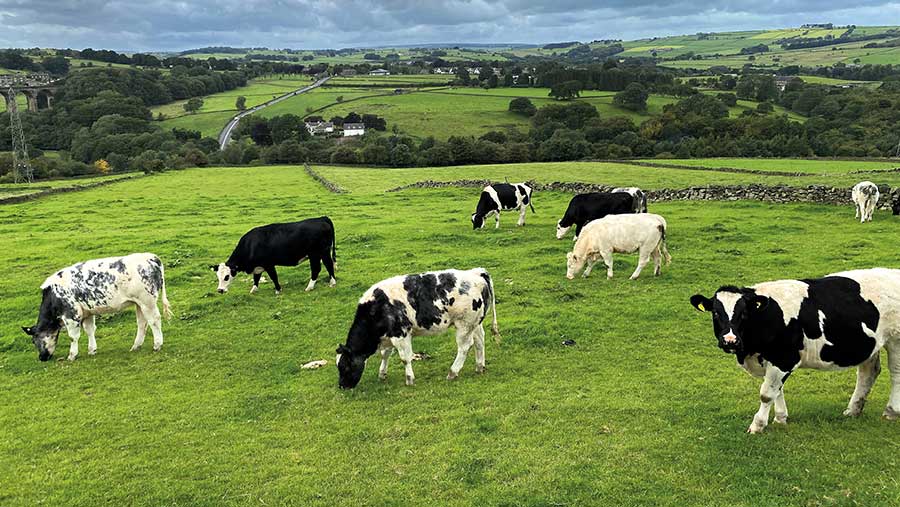6 top tips for sustainable parasite control
 © Derek Oldfield/Adobe Stock
© Derek Oldfield/Adobe Stock Habitual worming carries several risks. It is costly in time and money, drives resistance and prevents natural immunity to parasites developing.
In contrast, responsible worming in cattle and sheep gives farmers significant benefits through reduced costs, improved production, maintaining treatment efficacy and benefiting local farm environments.
See also: Why demand is hotting up for worm-resistant rams
About the author

Tom Warboys graduated in 2017 and joined Synergy full time after completing the RVC/Synergy Farm Health internship. His particular interests include youngstock and preventative health planning, particularly in suckler herds.
Sustainable use of parasiticides in cattle
The University of Bristol is exploring the use of parasiticides on UK cattle farms.
The project is asking farmers to record their monthly parasiticide use and number of cattle treated with these products.
This research will be used to predict future ecological effects and highlight potential resistance issues.
To register your interest and take part, or for more project information, please visit the website.
There are six ways farmers can approach parasite control to ensure long-term sustainability:
- Reduce stock vulnerability: Focus on immunity-based prevention. Disease-free stock will be far more resilient. Cattle vaccinated against lungworm before turnout will be less likely to need worming.
- Know your pastures: Assess risk factor based on the stock that were grazing there in previous years. This could be done by colour-coding fields from red to green, depending on whether youngstock, adults or nothing grazed there.
- Adopt faecal egg counting: This provides a useful indicator for group worming treatments, particularly in sheep, but also in cattle, where it is underused.
- Assess before treatment: Using information such as liveweight gain, body condition score and number of grazing seasons can help to target affected animals. This approach also allows other worm populations to remain “untreated”, which will help slow development of resistance.
- Choose the right drug: White or yellow drenches are usually adequate for cattle if you do need to worm. In sheep, narrow-spectrum products are suitable for targeting specific worm species while preserving other wormer groups for use in lambs. Establishing which wormers are effective in your flock is critical.
- Quarantine bought-in stock: Bought-in stock or animals returning from grazing away can bring resistant parasites onto your farm. Resources on the Sustainable Control of Parasites in Sheep and Control of Worms Sustainably websites cover the best quarantine treatments for herds and flocks, but they should not be considered in isolation. Parasite control plans can give confidence in reducing wormer use while avoiding disease. However, they should not be considered in isolation, but form part of herd and flock health planning with your vet.
Parasite control: The challenges
Resistance
Welsh research in 2015 highlighted that 98% of flocks in Wales had resistance to at least one wormer group, and one-third of farms already had resistance to white, yellow and clear products. Other studies have found similar levels of resistance in the UK.
Ivermectin resistance in cattle has been observed in the UK, with decreased efficacy seen on up to half of farms, 12.5% of cattle farms having confirmed resistance, and some farms showing no response to the drug at all. Unnecessary – or poorly administered – treatment can increase this.
Lack of natural resilience
By adulthood, ruminants develop their own immunity against gutworms.
In an ideal world, youngstock are exposed to a trickle of worms in their first year and build natural immunity, without disease.
Routine treatment often means this immunity is not developed until the second or third season. Vaccines can help achieve this immunity without risk of disease.
Environment
A high proportion of each ivermectin dose is excreted and remains active in dung for at least three weeks after treatment.
This has a big effect on insects such as dung beetles, which are essential for reducing the parasite burden on pastures, increasing soil health and grass yields.
Each month, we bring practical advice from an XLVets practice on a range of different subjects.
